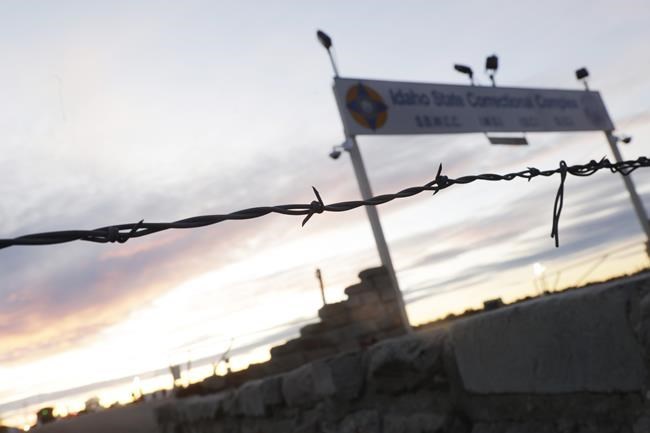KUNA, Idaho (AP) — Idaho on Wednesday delayed the execution of serial killer Thomas Eugene Creech, one of the longest-serving death row inmates in the U.S., after a failed attempt at lethal injection.
Creech, 73, was imprisoned in 1974 and has been convicted of five murders in three states and suspected of several more. He was already serving life in prison when he beat a fellow inmate, 22-year-old David Dale Jensen, to death in 1981 — the crime for which Creech was to be executed more than four decades later.
Creech was wheeled into the room at the Idaho Maximum Security Institution on a gurney at 10 a.m. The warden announced he was halting the execution at 10:58 a.m.
Idaho’s prison director said the medical team could not establish an IV line to administer the fatal drug. A team of three medical team members tried repeatedly to establish an IV, attempting sites in both of Creech’s arms and legs.
The IV sites appeared to be in the crook of his arms, his hands, near his ankles and in his feet. At one point, the medical cart holding supplies was moved in front of the media witness viewing window, partially obscuring the view of the medical team’s efforts. A team member also had to leave the execution chamber to gather more supplies.
Throughout the process, Creech frequently looked at his family members and representatives, who were sitting in a separate witness room. His arms were strapped to the table, but he frequently extended his fingers toward them, sometimes in a half-wave, sometimes just reaching.
He appeared to mouth “I love you” to someone in the room on occasion.
After the execution was halted, the warden approached Creech and whispered to him for several minutes, giving his arm a squeeze.
Creech’s attorneys immediately filed a new motion for a stay in U.S. District Court, saying “Given the badly botched execution attempt this morning, which proves IDOC’s inability to carry out a humane and constitutional execution, undersigned counsel preemptively seek an emergency stay of execution to prevent any further attempts today.”
The Idaho Department of Corrections said its death warrant for Creech would expire, and that it was considering next steps.
The execution was to be Idaho’s first in 12 years. Six Idaho officials, including Attorney General Raul Labrador, and four news media representatives, including an Associated Press reporter, were on hand to witness the attempt.
Creech’s attorneys filed a flurry of late appeals hoping to forestall his execution or have his sentence converted to life without release. They included claims that his clemency hearing was unfair, that it was unconstitutional to kill him because he was sentenced by a judge rather than a jury, and that he received ineffective assistance of counsel.
But judges in four courts who reviewed the petitions found no grounds for leniency.
A group of about 15 protesters had gathered outside the prison Wednesday, at one point singing “Amazing Grace.”
An Ohio native, Creech has spent the vast majority of his life behind bars in Idaho, though his crimes occurred in several western states. He was first imprisoned in Idaho in 1974 for the shooting deaths of John Wayne Bradford and Edward Thomas Arnold, two house painters who had picked up Creech and his girlfriend while they were hitchhiking. He was serving a life sentence for those murders in 1981 when he beat Jensen to death. Jensen was disabled and serving time for car theft.
Rebecca Boone, The Associated Press



